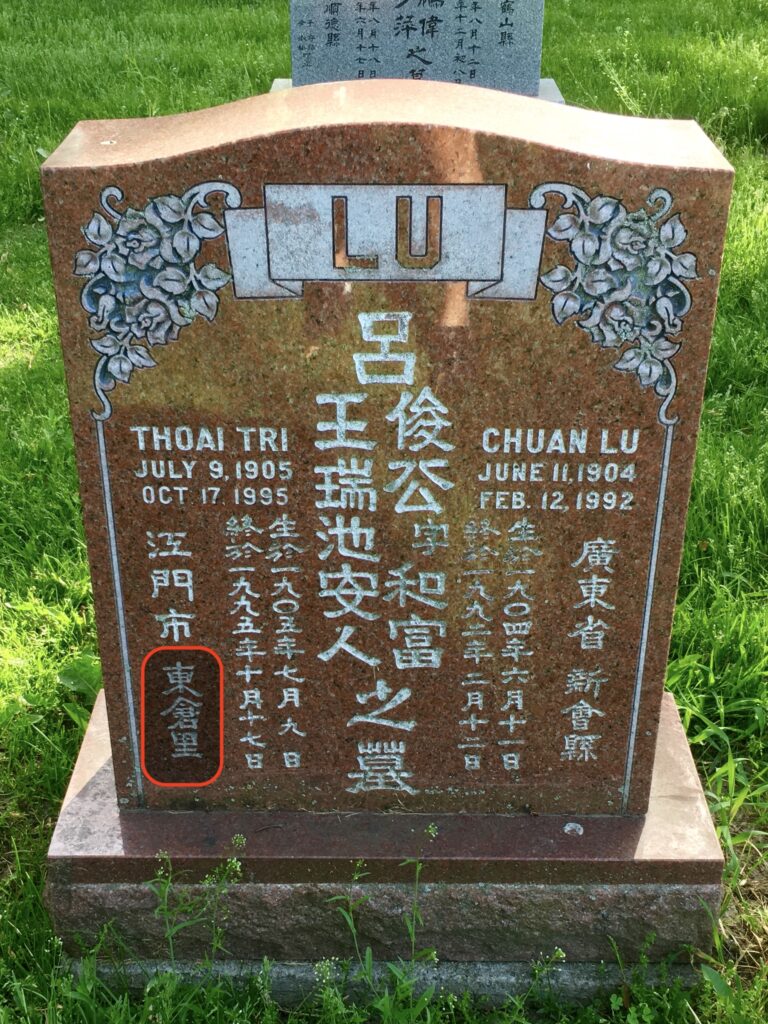On November 15th, we went to 东仓里, 江门市 (Jiangmen), 广东省 (Guangdong). We liked to thank Carol’s cousin’s sister-in-law who drove us to Jiangmen. It was about 2.5 hours from Fenggang with the traffic and all.
The idea is to checkout what the birth place of my grandfather’s ancestral village looks like today.
We based our search on the information from the tombstone on the left, and the remaining memories of my father and my aunt.
The ancestral village is called 东仓里 (sorry no English translation here). We also have my great-grandfather’s name, 呂贊泉, and my grandfather’s names (more than one), 呂華富, 呂俊, and 呂仲平. In the past, people went with many aliases. One is given at birth by your parents (名) and is used to address you by your parents or your family members. The second name (字) is given to you when you come of age (20 years old for male and 15 for female). Your school mates, friends, or people of the same generation will use this name to address you. The final name (号) is used by others to address you with respect typically by people of younger generation than you.
My father has the following names: 呂厚積 (名) and 呂栢钊 (字).
We arrive at the village and went to the local government office who was extremely helpful. They gave us a tour of the neighbourhood and introduced us to the people who have been there for ages. We met a lady who claimed to know a member of the Lu (吕) family who passed away at 103 years old about 3 years ago. His name is 呂厚巨 (名). Since both my father and this deceased member share the same 厚 middle name, there is a very high likelihood that they are of the same generation from the same family. She then told us that 呂厚巨 told her that a long time ago a part of the Lu (吕) family emigrated to Vietnam and never came back. This could be my grandfather at the time.
The ancestral home has since been knocked down, and she showed us where the house would have been. Everyone was very patient with our ignorance and received lots of help from people of the village. I use the word village very loosely, since it is now integrated into the Jiangmen city, and it looks and feels more of a neighbourhood surrounded by more modern buildings.
After our in search of our roots exercise we went to Shunde District (順德區) of Foshan City (佛山市), which also resides in the Guangdong Province (广东省). There, we had some good eats. Shunde is known for its Cantonese cuisine. You cannot get more Cantonese than Shunde. Checkout the attached video by Carol to get a taste of what we had.

